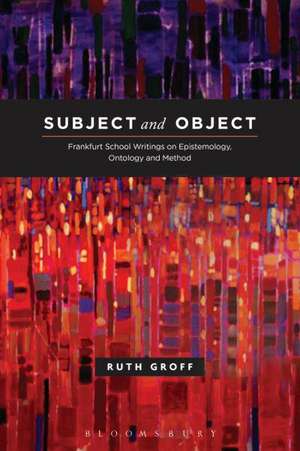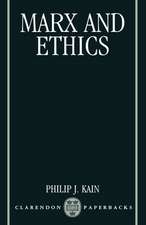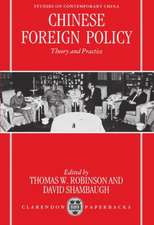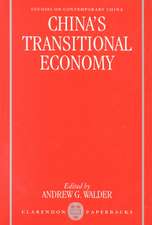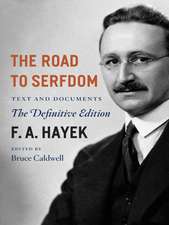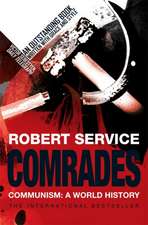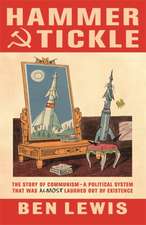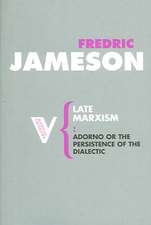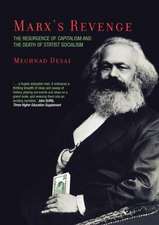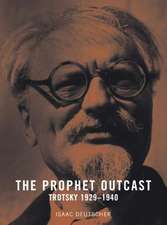Subject and Object: Frankfurt School Writings on Epistemology, Ontology, and Method
Editat de Dr. Ruth Groffen Limba Engleză Paperback – 18 iun 2014
| Toate formatele și edițiile | Preț | Express |
|---|---|---|
| Paperback (1) | 274.81 lei 43-57 zile | |
| Bloomsbury Publishing – 18 iun 2014 | 274.81 lei 43-57 zile | |
| Hardback (1) | 952.42 lei 43-57 zile | |
| Bloomsbury Publishing – 18 iun 2014 | 952.42 lei 43-57 zile |
Preț: 274.81 lei
Preț vechi: 331.45 lei
-17% Nou
Puncte Express: 412
Preț estimativ în valută:
52.59€ • 54.70$ • 43.42£
52.59€ • 54.70$ • 43.42£
Carte tipărită la comandă
Livrare economică 14-28 aprilie
Preluare comenzi: 021 569.72.76
Specificații
ISBN-13: 9781441122865
ISBN-10: 1441122869
Pagini: 328
Dimensiuni: 152 x 229 x 23 mm
Greutate: 0.57 kg
Editura: Bloomsbury Publishing
Colecția Bloomsbury Academic
Locul publicării:New York, United States
ISBN-10: 1441122869
Pagini: 328
Dimensiuni: 152 x 229 x 23 mm
Greutate: 0.57 kg
Editura: Bloomsbury Publishing
Colecția Bloomsbury Academic
Locul publicării:New York, United States
Caracteristici
Collection of essays by Adorno, Horkheimer and Marcuse thematically organized around epistemology, ontology, and method
Notă biografică
Ruth Groff writes about the metaphysical infrastructure of social, political and moral thought and of theories of agency. She teaches at Saint Louis University, USA.
Cuprins
IntroductionPreface Epistemology 1. Horkheimer, Means and Ends 2. Marcuse, Industrialization and Capitalism in the Work of Max Weber 3. Horkheimer, On the Problem of Truth 4. Marcuse, A Note on Dialectic 5. Adorno, Negative Dialectics selections Ontology 6. Marcuse, The Concept of Essence 7. Adorno, Subject and Object 8. Adorno, Negative Dialectics selections Method 9. Horkheimer, Traditional and Critical Theory & Postscript 10. Horkheimer, The Latest Attack on Metaphysics 11. Marcuse, Philosophy and Critical TheoryIndex
Recenzii
Ruth Groff should be congratulated for bringing together these seminal texts from the 'inner circle' of the Frankfurt School. They shed light on the purposes of critical theory and its salience for the present. Professor Groff has done the entire intellectual community an important service.
Ruth Groff's anthology is an important contribution for those of us teaching the writings of the so-called 'early Frankfurt School'. Bringing together in one anthology such groundbreaking texts as 'Subject and Object,' 'Means and Ends,' and 'Negative Dialectics' makes this a worthy enough project. But Professor Groff's entirely lucid introductory abstracts are what makes this an invaluable book. Strikingly clear, Groff's writings are absorbing and memorable reads on their own account.
The next time somebody tells you that critical theory is inattentive to objects-that all it cares about is culture, language, discourse, and codes-this volume is how you show them that they're wrong. The essays collected here draw our attention to a negative dialectics that has as much in common with Bruno Latour and Quentin Meillassoux as it does with Derrida and Foucault. The realists, materialists, and ontologists come knocking at the gates of Frankfurt.
This invaluable collection offers a nuanced, well-reasoned approach to questions of epistemology, ontology and method from the first generation of Critical Theorists that insists on "determinate" rather than "abstract" negation, situating these questions within the broader historical and social contexts from which they emerge. Ruth Groff's pithy introductions of each of these seminal essays, moreover, are wonderfully illuminating without simplifying their central claims.
Ruth Groff's anthology is an important contribution for those of us teaching the writings of the so-called 'early Frankfurt School'. Bringing together in one anthology such groundbreaking texts as 'Subject and Object,' 'Means and Ends,' and 'Negative Dialectics' makes this a worthy enough project. But Professor Groff's entirely lucid introductory abstracts are what makes this an invaluable book. Strikingly clear, Groff's writings are absorbing and memorable reads on their own account.
The next time somebody tells you that critical theory is inattentive to objects-that all it cares about is culture, language, discourse, and codes-this volume is how you show them that they're wrong. The essays collected here draw our attention to a negative dialectics that has as much in common with Bruno Latour and Quentin Meillassoux as it does with Derrida and Foucault. The realists, materialists, and ontologists come knocking at the gates of Frankfurt.
This invaluable collection offers a nuanced, well-reasoned approach to questions of epistemology, ontology and method from the first generation of Critical Theorists that insists on "determinate" rather than "abstract" negation, situating these questions within the broader historical and social contexts from which they emerge. Ruth Groff's pithy introductions of each of these seminal essays, moreover, are wonderfully illuminating without simplifying their central claims.
